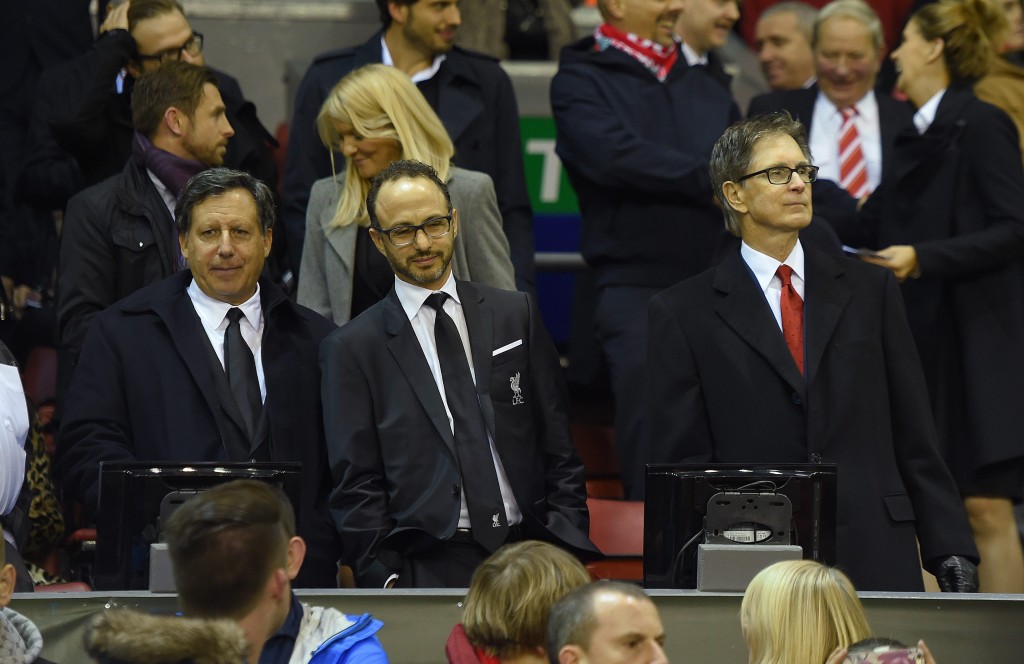When the Fenway Sports Group (FSG) took over Liverpool in 2010, they came with a desire to implement the famous ‘Moneyball’ tactics which had taken the whole of baseball by storm in the previous decade. Six years on and with little discernible positive impact, perhaps it is time for the Reds’ owners to rethink their philosophy.
In a statement to the Boston Globe in February, John W. Henry, principle owner of the Boston Red Sox and Liverpool FC, conceded he was considering reducing his reliance on analytics and his ‘Moneyball’ philosophy, with both his franchises struggling for success in their respective sports.
Speaking in reference to the Boston-based baseball club, Henry said, “I spent at least two months sort of looking under the hood, and came to the conclusion that we needed to make changes.”
Speaking of his baseball team’s poor performance in the last 3 seasons in the MLB, he states: “One of the things that we’ve done — and I’m fully accountable for this — is we have perhaps overly relied on numbers, and there were a whole host of things.”
Getting Liverpool FC out of financial trouble
In September 2010, Liverpool were faced with financial ignominy owing to the shortcomings of their controversial American owners Tom Hicks and George N. Gillett, who had laid a £282 million debt on the Anfield club. In a buyout that rid the club off its debt crisis, the John W. Henry owned Fenway Sports Group took over the ownership of the club in October 2010 in a deal worth £300 million.
Henry’s appreciation and adoration for the Moneyball principles is no secret. Embracing the statistical and empirical analysis of player data to conjure up a winning formula for a sports team earned him enormous success with the Boston Red Sox, with the ball club securing 3 World Series titles and 3 American League Pennants in his time as owner. In a bid to affect a similar influence in the sport of football, he entered the scene with Liverpool FC.
Through their six years, the club has changed managers three times. They have come a long way from the horror of the Roy Hodgson era, seeing through the times of King Kenny and Ulsterman Brendan Rodgers and recently appointing Jürgen Klopp. While “King” Kenny Dalglish brought in some much needed silverware, Brendan Rodgers almost fulfilled a 24-year long dream of winning the English Premier League title.
Jurgen Klopp’s Liverpool are still a work in progress, but it is worth noting that they have already featured in a cup final and are still very much in the running for Europa League glory — all in the space of only 6 months.
Liverpool have spent well in excess of £300 million over the last six years, with significant investment in statistically superior players available on the cheap in the market. While the likes of Philippe Coutinho, Daniel Sturridge, Luis Suarez and Jordan Henderson among others paint a positive picture of the club’s transfer dealings, there have been a significant number of failed transfers that help present a strong case against the Moneyball tactics employed by the club.
The club’s dependence on buying young talent has often been criticized as a lot of the players seem to take relatively longer to get used to life at the club and in the Premier League. As such, Liverpool almost appeared to be a club perennially in transition with a lack of top quality replacements for the stars leaving them. Failure to lure the signature of quality footballers like Alexis Sanchez, Willian and Henrikh Mkhitaryan also threw a bad light on the club’s position in the market.
The controversial and fairly anonymous ‘transfer committee’ set up by FSG at Liverpool reportedly featured a group of data analysts who discussed the crop of players the club has shortlisted and submitted their suggestions and analyses to the manager. On a few occasions, the manager’s opinion has been over-ruled and the club has gone ahead with the committee’s decision, hence causing friction between the two parties.
What needs to be done
With only one trophy to show in the last 6 years, it is clear that Moneyball tactics aren’t quite helping Liverpool, and the club’s recent links to players in the transfer market suggest Henry is set to change ways with his football franchise as well.
Mario Götze has been strongly linked with a move to Jürgen Klopp’s Reds and this could well signal a change in philosophies from FSG. It would be foolish to completely dump their earlier ways as for all the shortcomings, the club had immensely benefited from the system too. A case in point is the 2013/14 season when they almost lifted the Premier League title.
A coherent balance of young talent along with established quality would do a world of good for Liverpool at the moment and Mario Götze definitely fits the bill. With a potential reunion with former boss Jürgen Klopp on the cards, this could be a move that benefits all parties — the player, club and FSG.
